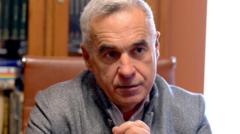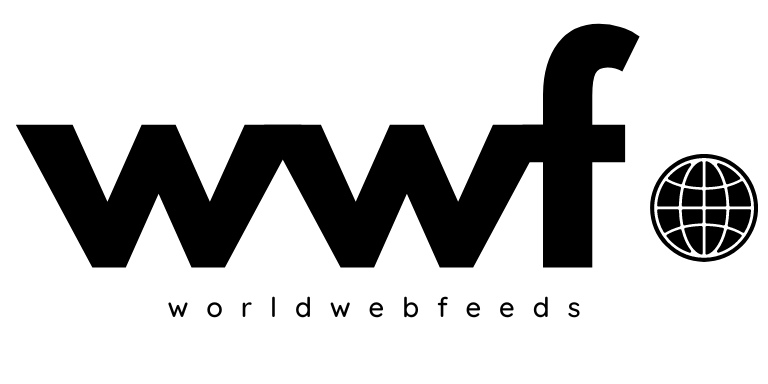Romania’s far right presidential frontrunner vows to end Ukraine aid


Calin Georgescu, the fringe nationalist politician leading the presidential race in Romania, has told the BBC that he would end all support for Ukraine if elected.
He is facing a second-round run-off in the elections on Sunday, where he will run against Elena Lasconi, a former TV presenter who is campaigning on a firmly pro-EU platform.
Georgescu, whose only election campaigning has been on social media, said he would make “the Romanian people” his priority.
But he denied that his surprise success so far was the result of a Russian-backed influence operation, saying he did not care about the “lies” of his country’s intelligence agencies as he was working with God and the people.
On Wednesday, in a highly unusual move, Romania’s outgoing president published declassified documents that detailed what was called a massive and “highly organised” campaign for Georgescu on TikTok co-ordinated by a “state actor”.
The papers included an intelligence assessment that Russia was carrying out hybrid attacks on Romania, which it sees as an “enemy state”.
The constitutional court is now being flooded with requests to look into the allegations of meddling with a view to possibly cancelling the election.
Prosecutors today announced they were opening a criminal investigation but there is no timeline on when that might conclude.
“They are afraid,” is how Georgescu brushed away evidence that hundreds of thousands of dollars were spent pushing campaign content for him, breaking both Romanian election law and TikTok’s own rules.
He denied that he was “Moscow’s man”, referring derisively to Romania’s “un-intelligence agencies”.
“They can’t accept that the Romanian people finally said, ‘we want our life back, our country, our dignity’,” he said, portraying himself as battling against an unyielding establishment.
In a sometimes tetchy interview in which he praised Donald Trump and the Hungarian populist leader Viktor Orban, Georgescu referred to Vladimir Putin as a “patriot and a leader”.
He then added: “But I am not a fan.”
But when questioned about Russia’s war on Ukraine, he first asked, “Are you sure of that?”, appearing to deny the war’s very existence.
He then said Romania was interested only in pushing for peace on its border but refused to say that this should be on Kyiv’s terms.
When asked whether he agreed with standing by Ukraine, as the EU puts it, “for as long as it takes”, Georgescu said “No.” He said things would change.
“I agree just that I have to take care of my people. I don’t want to involve my people,” he replied, clarifying that Romania – an EU and Nato member – would provide no more military or political support for its neighbour.
“Zero. Everything stops. I have to take care just about my people. We have a lot of problems ourselves.”
It would be a dramatic change in position for Bucharest, and one that would be music to Russian ears.
The president in Romania has considerable power, including influence on areas such as foreign policy. He is also the commander-in-chief of the armed forces and appoints the prime minister.
Romania shares a long border with Ukraine and has been a staunch supporter of Kyiv since the full-scale invasion in 2022.
It’s provided a Patriot missile defence system as well as financial support. It’s also become a key export route for Ukrainian grain, as Russian bombardments have crippled the work of ports there.
Under a Georgescu presidency, Romania would join Hungary and Slovakia as Russia-sympathisers on the eastern flank of Nato.
It would also be a serious dent to EU solidarity on Ukraine, just as it faces the prospect of assuming more responsibility for aiding Kyiv with Donald Trump back in the White House.
Georgescu underlined that he would keep Romania inside the EU and Nato, but that everything from now on would be “negotiated” and focus on his country’s interests.
He refused to say that Vladimir Putin’s Russia was a security threat for the West.
His endorsement of conspiracy theories has also sparked concerns, including denying the Covid pandemic and doubting that anyone ever landed on the Moon.
Romania is home to a giant Nato military base, close to the Black Sea, as well as a US missile defence facility.
Georgescu now describes himself as a university teacher, but has previously worked in the Ministry of Foreign Affairs and with the UN.
He clearly does have supporters – his clean-living, Romania-first message has popular appeal, especially outside Bucharest.
But in the capital many people are worried about the direction their country may be taking.
When asked if he understood why they were scared, Georgescu shook his head: “That’s just propaganda.”
On Thursday evening, several thousand protesters gathered in central Bucharest to call for Romania to remain closely allied with Europe – many holding the blue EU flag.
Others brought Romanian flags with a circular hole in the centre, a reminder of how after the 1989 revolution people cut out the communist symbols.
Talk of Russian influence – Moscow meddling in any form – is an emotional topic for many. Several chanted “Freedom!” and “Europe!”
One man told the BBC he and his friends had been with protesters on the streets of Bucharest 35 years ago, and couldn’t bear to think of Romania going back to the past.
Another woman, Anca, said she saw the “long arm of Russia” at work in Romania’s presidential election and had come to the rally to show she believes her country’s future has to be firmly in Europe.
